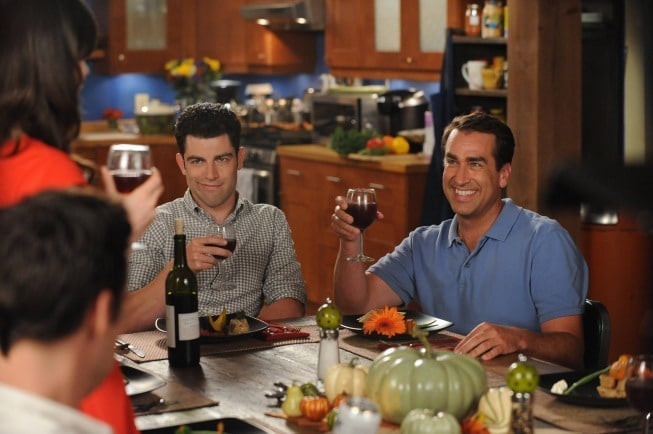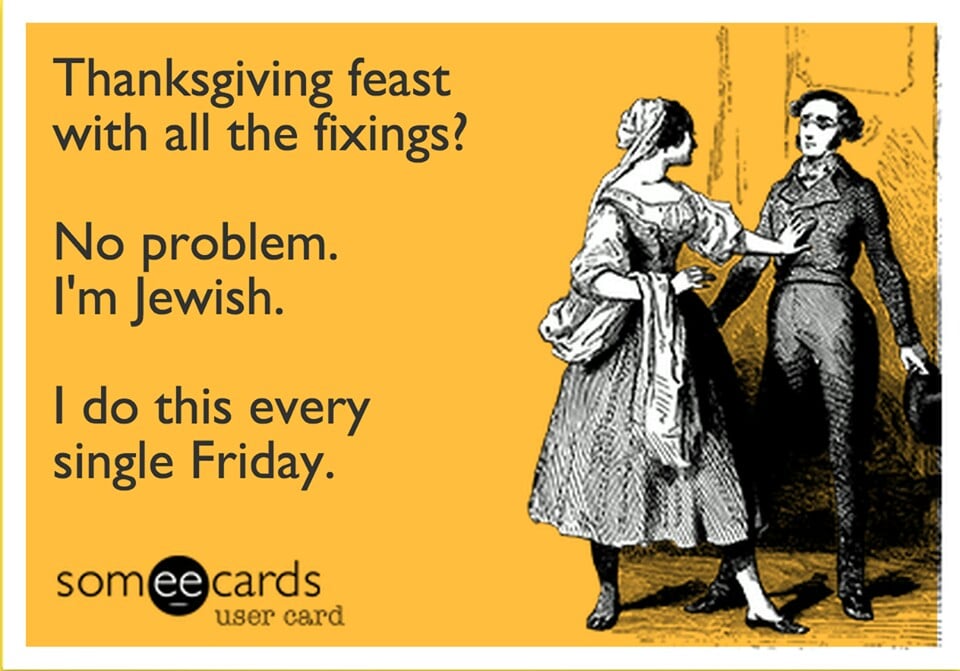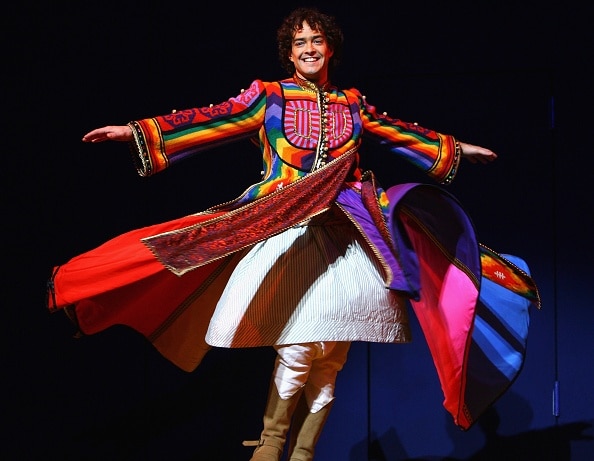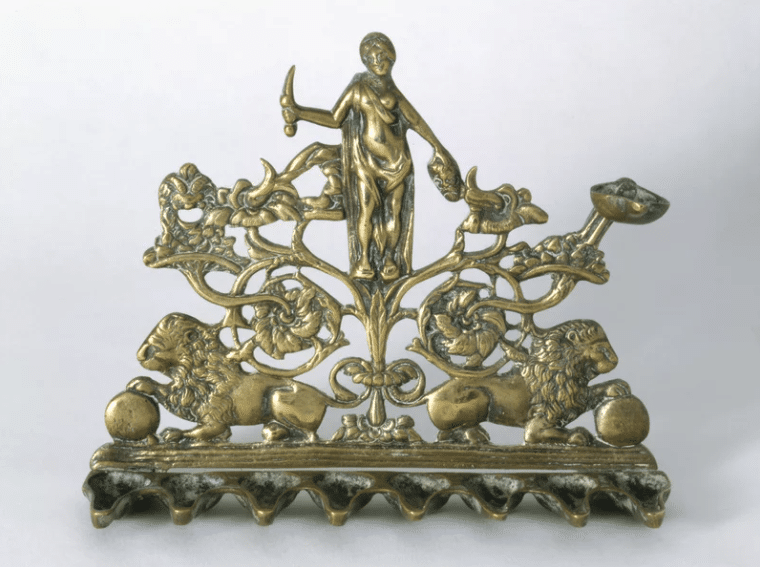
Buckle up, there’s going to be a lot of people talking at you this week, so that’s why we created this handy guide on how to change the subject without invoking conversations on the Two State Solution, intermarriage, or (God forbid) why you’re still not married!
Thanksgiving

“Did you know that rabbis first thought turkey wasn’t a kosher bird?!” Shouting this out will definitely turn heads and stop people mid-sentence.
In the 16th century rabbis debated whether or not a turkey was the “red chicken” that the Palestinian Talmud quotes as being “more foul than the excrement of most animals.” Needless to say, the debate was short lived and there’s a near universal agreement that turkey is indeed a kosher bird… however (two Jews, three opinions) certain Orthodox circles till this day do not eat turkey due to the animal not being considered a “traditional bird” (i.e. turkeys come from the New World and not from original Jewish communities).
If that doesn’t work, you can also drop this bit of knowledge— Jews in America have been celebrating Thanksgiving since the very first one. This little factoid is guaranteed to garner at least a “so what?”
Congregation Shearith Israel in New York’s Upper West Side has been marking Thanksgiving since 1789. In fact, every Thanksgiving the congregation holds a special service.
“We were around when it was a Dutch colony, and the establishment of the United States of America, and the very first Thanksgiving,” Barbara Reiss, executive director of the synagogue, told The New York Post. “We felt it was important enough to incorporate that into our service and our prayers from the get go as a day of thanks as American Jews.”
Shabbat

One meal down… now on to Shabbat. Let’s get religious. This week’s parsha includes a well known story— Joseph and his amazing technicolor dreamcoat.
I talked to a rabbi friend of mine, Yaacov Leaf, and he came up with a great way to add fuel to the fire (but in a good way):
“Everyone knows about this multicolor coat but nobody actually knows about it and what it actually represents. What was the symbolism behind it? What was Jacob trying to accomplish in giving it to Joseph? He knew it would add fuel to the fire because of already showing favoritism towards him,” he told me.
“We don’t know what it represents and what he’s (Jacob) trying to accomplish, what was his coat, did he make it, was it sentimental? Why did he give Joseph this coat? Why is it important for us to know?”
The Torah actually doesn’t give us any of these answers so there’s no right or wrong here. Consider that a rabbi approved pot stirring.
And if that doesn’t stop the conversation, there’s always the random fact that this is the first mention in the Torah of a fashion statement.
Hanukkah

“You know, if we were being really traditional, these latkes would actually be made from cheese,” drop this little bit of randomness into a boring Hanukkah party conversation and enjoy the results.
The first documented account of the Hanukkah latke shows up in the writings of an Italian rabbi named Kalonymus ben Kalonymus (c. 1286-1328).
Now here’s where you really bring them in— talk about the gory story of Yehudis beheading an Assyrian general after getting him drunk on strong wine and passing out on too much salty cheese. Then bring up that in Medieval times cheese was eaten on Hanukkah to celebrate this unconventional Jewish victory and hence the first latkes being made out of cheese (also there’s the fact that potatoes didn’t really get popular in Europe until the 18th century). This is a much better conversation than applesauce versus sour cream.
Can disagreements bring us closer?
Is there a way to disagree with someone and not hate them? When disagreements get heated, it’s important to remember that there are better ways to communicate. Read more here.
Originally Published Nov 25, 2021 12:02AM EST
